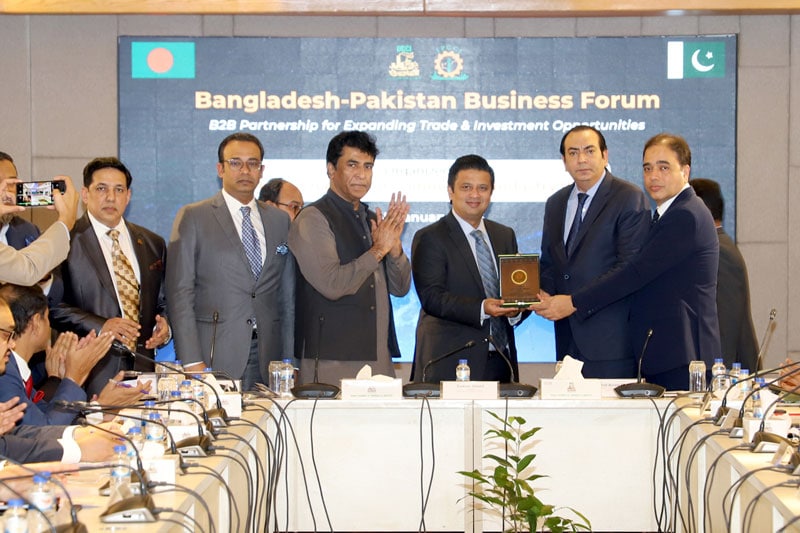Atif Ikram Sheikh, President of the Federation of Pakistan Chambers of Commerce and Industry (FPCCI), has emphasized the need for Pakistan and Bangladesh to establish a Free Trade Agreement (FTA) or Preferential Trade Agreement (PTA) to unlock the vast untapped potential for bilateral trade, which could significantly boost both economies.
Speaking on the final day of the FPCCI-led trade delegation’s visit to Bangladesh, Sheikh highlighted the immense opportunities for growth, noting that bilateral trade between the two countries remained under USD 800 million in 2023–24 — a figure far below the true potential of the combined populations of over 450 million people. He suggested that a target of USD 2–3 billion in bilateral trade within the next few years should be the goal, necessitating the negotiation and signing of an FTA or PTA between the governments of both nations.
During the visit, FPCCI representatives engaged in several high-profile meetings with the Dhaka Chamber of Commerce & Industry (DCCI), the Export Promotion Bureau (EPB), and with Syed Ahmed Maroof, Pakistan’s High Commissioner to Bangladesh.
The meetings laid the groundwork for reducing trade barriers, such as easing visa regimes, introducing online visa processing, and promoting direct flights. The importance of strengthening business-to-business and chamber-to-chamber relations was also emphasized. At DCCI, Sheikh reiterated the need for collaboration, urging both nations to prioritize importing from each other rather than from third countries to make their trade more competitive. He stressed the similarity in the socioeconomic conditions of Pakistan and Bangladesh, highlighting that both countries have young populations that need to be engaged in export-oriented industries.
The visit also focused on fostering industrial collaborations and bilateral investments. Saquib Fayyaz Magoon, Senior Vice President of FPCCI, called for joint ventures, single-country exhibitions, and regular trade delegations to enhance bilateral relations.
He also expressed satisfaction with the large import orders for sugar and raw fabric coming from Bangladesh. Anwar Hossain, Vice Chairman of the EPB, extended an invitation to Pakistani industrialists and investors to establish industries in Bangladesh, offering full support with land provision, infrastructure, and utilities.
Magoon expressed appreciation for the facilitation extended to Pakistani investors, highlighting the positive atmosphere for investment in Bangladesh.
The trade delegation was hosted at a dinner by Syed Ahmed Maroof, Pakistan’s High Commissioner in Bangladesh, attended by top business leaders, industrialists, and members of the social elite in Bangladesh. The dinner served as a platform for networking and fostering new trade and corporate relationships.
Sheikh Bashiruddin, Advisor on Commerce to the Interim Government of Bangladesh, also attended the event, reaffirming the government’s commitment to offering preferential treatment to Pakistani exporters and products.
Atif described the event as the dawn of a new era of cooperation, economic growth, and prosperity between Pakistan and Bangladesh, emphasizing the potential for greater collaboration and mutual benefits through a formal trade agreement.










